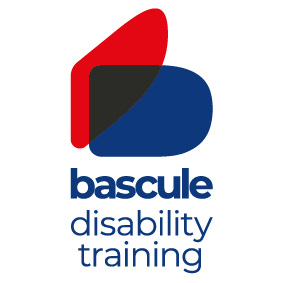How you can make your retail store more autism-friendly

At Bascule, we applaud businesses and organisations that make a commitment to creating a more inclusive service and brand, which is why this month we have a guest blog written by Rachel Clinkard, from the independent footwear chain, Charles Clinkard. In this article, Rachel explains how the footwear firm has placed autism awareness at the heart of their ethos and how other businesses can follow suit.
- - - - - - - - - - - - - - - - - - - - - - - - - - - - - - - - - - - - - - - - - - - - - - - - - - - - - - -
For a child with autism, a trip to the shops can be a challenging experience. Thankfully, there are ways you can make your stores a more welcoming environment.
When the time comes to take a shopping trip, the experience can be overwhelming for a child on the autistic spectrum. Most stores are set up to appeal to a shopper's senses, but the bright lights, loud noises, and crowds of people can cause overload for them, which may sometimes result in anxiety or stress.
For retailers, there are several ways to make the experience easier for both children and parents so they can have a stress-free shopping experience. Customer satisfaction has been at the heart of the Charles Clinkard core values since 1924, which is why we’ve made some simple changes within our stores to provide a safe and welcoming environment for those with an Autism Spectrum Disorder (ASC).
Below, I'm going to share some of the measures we’ve adopted to make our retail stores more autism-friendly and provide some tips for any retailers looking to do the same.
Adapt your retail environment
As I mentioned earlier, the lights, noise, and crowds of a retail space can be challenging for a child with ASC, so you should consider ways of removing some of these stimuli. We've found that having extended opening hours to create a "quiet time" with dimmed lights and no music can work quite well and reduce the chances of sensory overload.
It’s also a good idea to provide an area where families can go for some quiet time away from all the hustle and bustle. This will ensure that you can suitably accommodate your customers should things get a bit overwhelming. You don't need to do anything over the top for this — a quiet corner or space away from the shop floor kitted out with chairs or bean bags will suffice.
Tailor your service
While providing a dedicated hour in more autism-friendly surroundings is a great starting point, it's important to remember that children with ASC have unique, individual needs, so there won't be a one-size solution that appeals to everybody. That's why it's important to adapt any measures you take with a tailored, customisable service that can adapt to each child.
At Charles Clinkard, we have a policy in place where a customer can let the store know that they have a child with autism when they book in a fitting appointment, and we'll make any relevant adjustments within the store ahead of their arrival. We also offer sensory packs that are designed to keep children calm during their time in-store.
After the fitting appointment, we take the time to request feedback to try and improve the service in the future. We also find it useful to record each child's needs so that we can adapt to them without prompt at future appointments.
Provide training for your staff
In my experience, training your staff to support children with autism and their families is probably the most important step you can take. After all, if your team know more about ASC and what to expect, they will be better equipped to offer a compassionate yet useful service that meets the needs of the child.
To understand how important this element of service can be, you only need to take in the positive feedback you'll receive from your customers. For example, a parent who visited our Sheffield store said: "We took our son with ASC to the adult shop so he could be fitted with new school shoes in peace. The staff went beyond our expectations of helpful and accommodating. For the first time ever he’s chosen his own shoes with the help of your outstanding staff."
The National Autistic Society and the NHS are two fantastic resources to refer to in any training you provide for staff, and you may wish to organise some general business disability training to build a solid foundation of empathy and awareness.
Build customer relations
Lastly, I would recommend that, if possible, you allow children with autism to be served by the same member of staff each time they visit your store. This helps to build a routine that can help the child develop a sense of normality in what can be an overwhelming environment.
Looking at our own customer feedback, we know that building customer relations can be vital for a family visiting our stores. One parent told us it was incredibly helpful for her daughter to be fitted by the same staff member each time: "Whenever we entered the shop, Julie would always see us straight away, and having a familiar face was always massively helpful." So, if it's something that you can accommodate in your business, it's really worth going out of your way to make it possible.
I hope that this advice can help you to offer a dedicated service for children with autism. We've found it greatly rewarding, as well as being extremely helpful for our customers.



